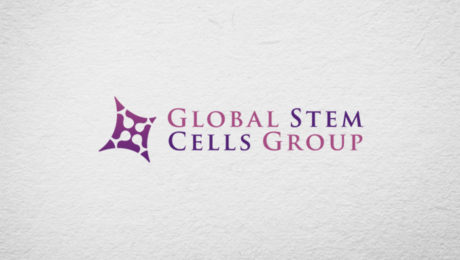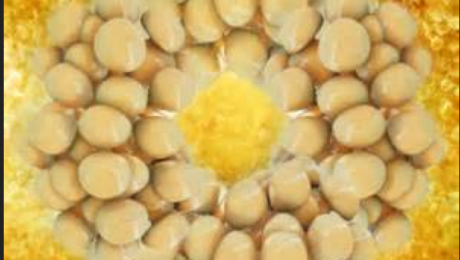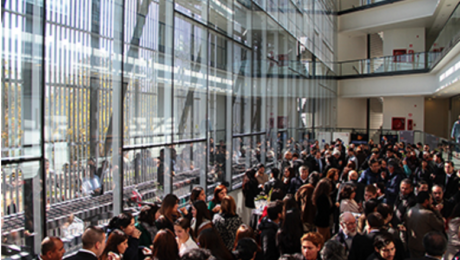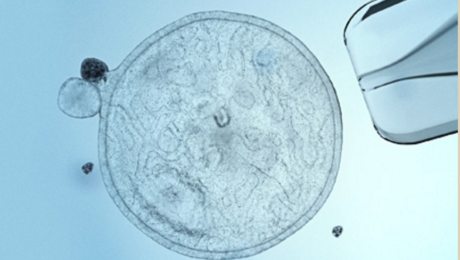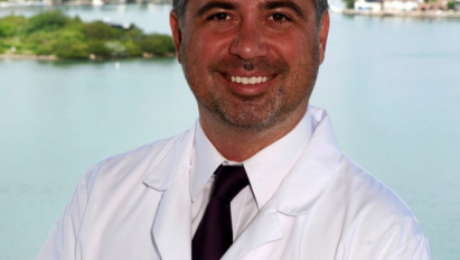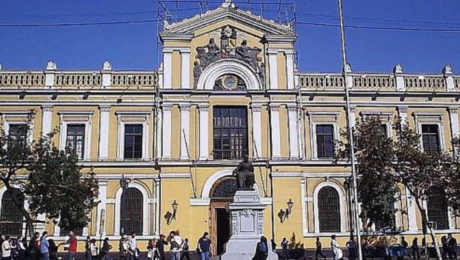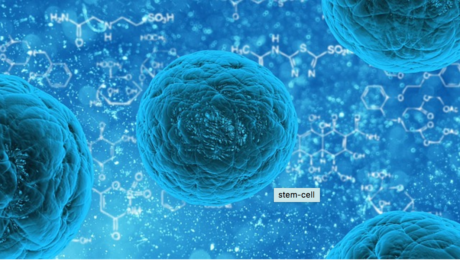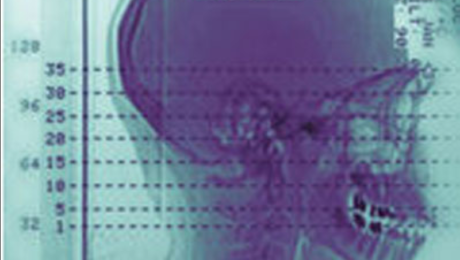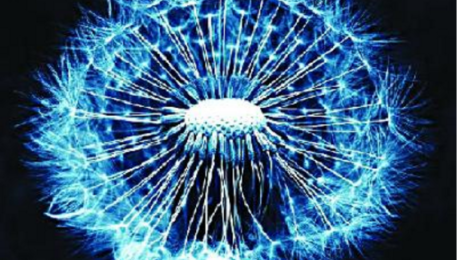Global Stem Cells Group Affiliate University of Santiago Biotechnology Lab Applies for RTA Certification
MIAMI, April 30, 2016–Global Stem Cells Group CEO Benito Novas announced that the University of Santiago has become the latest GSCG affiliate to apply for Regenerative Technologies Alliance (RTA) certification. RTA certification represents the highest standards of excellence in current medical and laboratory practices against established standards.
The announcement comes less than a week after Global Stem Cells Group announced a mutual endorsement for an Asian-Pacific alliance with the university to host a regenerative medicine and stem cell symposium July 1-2 at the 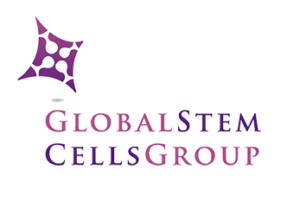 university’s Santiago campus. Through the alliance, the two organizations have established a working agenda for collaborative initiatives and educational programs in stem cell and regenerative medicine research and development for 2016 – 2020.
university’s Santiago campus. Through the alliance, the two organizations have established a working agenda for collaborative initiatives and educational programs in stem cell and regenerative medicine research and development for 2016 – 2020.
Experts in the field of regenerative and cell-based medicine conduct the RTA certification program. The Regenerative Technologies Alliance, a 501(c)3 non-profit organization operated by Regenetech and supported by individuals and institutions committed to bringing peer oversight and transparency to the regenerative and cell-based medicine industry, provides certification for:
- Laboratory Facilities that provide the processing of human tissue for the development of cell-based applications
- Clinical facilities seeking to participate in authorized studies that are approved by Institutional Review Boards (IRB)
- Medical facilities providing cell-based medical therapies to patients.
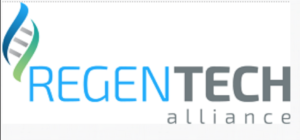 According to Benito Novas, CEO of Global Stem Cells Group, the certification process will be conducted under the direction of David B. Audley, RTA Chair and General Secretary. Audley is a highly regarded medical marketing and management services consultant who co-founded MedTourGlobal after 10 years in the emerging field of regenerative medicine.
According to Benito Novas, CEO of Global Stem Cells Group, the certification process will be conducted under the direction of David B. Audley, RTA Chair and General Secretary. Audley is a highly regarded medical marketing and management services consultant who co-founded MedTourGlobal after 10 years in the emerging field of regenerative medicine.
Santiago was the city chosen for the first RTA accreditation in Latin America. This type of accreditation differs from traditional accreditation processes in that it examines all aspects of service and patient care, considers the progress of the location and the potential for receiving international patients, as well as meeting quality expectations.
The alliance between Global Stem Cells Group and the University of Santiago extended an invitation to Audley and started the RTA application and review process to assess the reception, harvesting, bio-processing and application of stem cells, in the university’s Biotechnology and Molecular Biology Laboratory and Providencia Stem Cells Center. This international certification opportunity includes evaluating and reinforcing physicians working in those areas, and validating the processes and bio-technological resources against international standards.
RTA delegates are expected to visit the University of Santiago facility in July to conduct a physical inspection of the premises. The goal is to create a cell therapy hub in Santiago that can accommodate the needs of patients in neighboring countries seeking stem cell and regenerative medicine treatments. Strong patient demand in the United States and Europe have also created a growing interest in the medical tourism industry.
Global Stem Cells Group Chief Medical Officer Enrique Testart, M.D., heads a medical and scientific team tasked with establishing a new edition of the post-graduate diploma program, “Diplomat in Cell Therapy and Tissue Engineering” at Santiago University.
The theoretical and practical, 120-hour program will deliver the fundamentals of the most advanced cell therapies and clinical applications currently practiced safely and effectively in more than 35 cities worldwide.
Testart and Novas have collaborated on the push to highlight Chile’s appeal as a destination for patients seeking stem cell therapies for a variety of conditions, and as part of GSCG’s ongoing commitment to expand the reach of stem cell treatments throughout Latin America. Global Stem Cells Group’s Quito, Chile clinical facility is also in the process of earning RTA certification.
Novas says that GSCG aims to have all the company’s clinical facilities earn RTA certification by the end of 2016.
Global Stem Cells Group’s presence in Chile represents one of the largest integrated science and technology organizations associated with tissue engineering and tissue regeneration. GSCG represents the areas of research, development, medical appliances, equipment and protocols for clinical standards, and is fast becoming a global leader in adult stem cell therapies, medical training in stem cell protocols, and the manufacture of high quality products and supplies in regenerative medicine.
Their strategic leadership puts them in the forefront of stem cell research, medical education and patient care. Global Stem Cells Group comprises six companies, each of which works in specialty areas related to the stem cell industry .
To learn more, visit the Global Stem Cells Group website, Email bnovas(at)stemcellsgroup(dot)com, or call 305-560-5337.
About Global Stem Cells Group:
Global Stem Cells Group, Inc. is the parent company of six wholly owned operating companies dedicated entirely to stem cell research, training, products and solutions. Founded in 2012, the company combines dedicated researchers, physician and patient educators and solution providers with the shared goal of meeting the growing worldwide need for leading edge stem cell treatments and solutions. With a singular focus on this exciting new area of medical research, Global Stem Cells Group and its subsidiaries are uniquely positioned to become global leaders in cellular medicine.
Global Stem Cells Group’s corporate mission is to make the promise of stem cell medicine a reality for patients around the world. With each of GSCG’s six operating companies focused on a separate research-based mission, the result is a global network of state-of-the-art stem cell treatments.
###
To view this press release live online, click here
- Published in Press Releases
Global Stem Cells Group Announces Cell Assisted Fat Transfer Training
MIAMI, April 30, 2016–Global Stem Cells Group and Stem Cell Training, Inc. have announced the addition of a cell assisted fat transfer training course, to be conducted by Alfredo Hoyos, M.D., head of the GSCG Advisory Board, and Enrique Testart, M.D., GSCG Chief Medical Officer.
Two courses are scheduled, one to be conducted in Santiago, Chile August 23-24, and the other in Cancun, Mexico October 11-12.
The training course involves facial fat transfer injection combined with adipose-derived stem cells, to address the primary issues that concern patients in the aesthetic field, including facial aging caused by volume loss.
Hoyos is a plastic surgeon and stem cell expert who founded Stemlab, a Bogota, Colombia facility that conducts extensive research in regenerative medicine in an effort to establish stem cell treatments that can repair damaged tissue in living organisms.

Alfredo Hoyos, MD
Testart is a surgeon specializing in child trauma microsurgery. He is also a medical entrepreneur and founder of Consortia Innovas S.A. in Santiago, Chile, an organization dedicated to consulting and clinical health management for clinical management firms and research and development-oriented planners on the latest treatments in regenerative medicine as they become available.
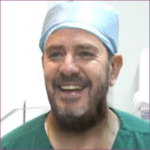
Enrique Testart, MD
Hoyos and Testart will train qualified physicians on cell assisted fat transfer techniques and protocols, during which fat cells are harvested from the patient’s own body and redistributed to other areas of the body to augment sunken or thin regions of the face or body in order to add volume where it is desired.
Lipoinjection for cosmetic treatments can be unpredictable, and has a low rate of graft survival due to partial necrosis. To overcome these problems, cell assisted fat transfer (lipostransfer) was developed as a strategy wherein autologous adipose-derived stem (stromal) cells (ASCs) are used in combination with lipoinjection. A stromal vascular fraction (SVF) containing ASCs is freshly isolated from half of the aspirated fat and recombined with the other half. This process converts relatively ASC-poor aspirated fat to ASC-rich fat, reducing postoperative atrophy of injected fat to a minimal leve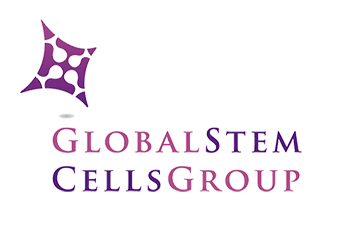 l that clinical trials have found does not change substantially after 2 months. Patients walk away with soft and natural-appearing augmentation.
l that clinical trials have found does not change substantially after 2 months. Patients walk away with soft and natural-appearing augmentation.
Cell assisted fat transfer is a promising treatment for facial rejuvenation and soft tissue augmentation because there are no incisional scars or complications associated with foreign materials.
The cell assisted fat transfer training course will be offered through Global Stem Cells Group affiliate Stem Cell
To learn more, visit the Global Stem Cells Group website, or the Stem Cell Training website, email 
About Global Stem Cell Group:
Global Stem Cells Group, Inc. is the parent company of six wholly owned operating companies dedicated entirely to stem cell research, training, products and solutions. Founded in 2012, the company combines dedicated researchers, physician and patient educators and solution providers with the shared goal of meeting the growing worldwide need for leading edge stem cell treatments and solutions. With a singular focus on this exciting new area of medical research, Global Stem Cells Group and its subsidiaries are uniquely positioned to become global leaders in cellular medicine.
About Stem Cell Training, Inc.:
Stem Cell Training, Inc. is a multi-disciplinary company offering coursework and training in 35 cities worldwide. The coursework offered focuses on minimally invasive techniques for harvesting stem cells from adipose tissue, bone marrow and platelet-rich plasma. By equipping physicians with these techniques, the goal is to enable them to return to their practices, better able to apply these techniques in patient treatments.
###
To view this press release live online, click here
- Published in Press Releases
University of Santiago to Endorse Asian-Pacific Symposium
MIAMI, April 30, 2016–Global Stem Cells Group has announced the University of Santiago’s plans to endorse an alliance between GSCG and the university’s Biotechnology Lab to host an Asian-Pacific Symposiu m and other initiatives for potential stem cell protocol management for 2016 – 2020. The symposium will be held July 1-2 at the university in Santiago, Chile.
m and other initiatives for potential stem cell protocol management for 2016 – 2020. The symposium will be held July 1-2 at the university in Santiago, Chile.
In 2015, University of Santiago officials and top Global Stem Cells Group executives began meeting to establish a working agenda and foster initiatives to promote stem cell research and development as a collaborative effort.
Professor Alejandra Moenen, Ph.D., who heads the University of Santiago’s Biochemistry and Molecular Biology Department, and a team of Ph.D.s from the university will join Global Stem Cells Group to host the Asian-Pacific Symposium. Moenen is an internationally prominent researcher whose work in biological research has been published in 50 major scientific journals worldwide.
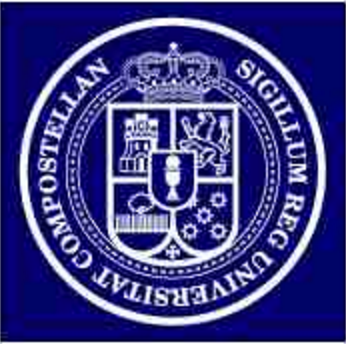 The symposium will concentrate on regenerative medicine and stem cell applications to anti-aging and aesthetic medicine. University of Santiago faculty will lead the symposium, and qualified academic and medical groups from around the world will be invited to present their scientific papers. Among them will be Duncan Ross, Ph.D., a Global Stem Cells Group Advisory Board member who will present his abstract, “The mechanism of action of stem cells in regenerative medicine is increasingly being understood to be effected through paracrine factors. Central to the question of when and how to treat an individual disease is where and for what duration a transplanted cell will persist to generate these factors.”
The symposium will concentrate on regenerative medicine and stem cell applications to anti-aging and aesthetic medicine. University of Santiago faculty will lead the symposium, and qualified academic and medical groups from around the world will be invited to present their scientific papers. Among them will be Duncan Ross, Ph.D., a Global Stem Cells Group Advisory Board member who will present his abstract, “The mechanism of action of stem cells in regenerative medicine is increasingly being understood to be effected through paracrine factors. Central to the question of when and how to treat an individual disease is where and for what duration a transplanted cell will persist to generate these factors.”
A meeting to confirm the Asia-Pacific Symposium alliance was attended by Kevin Maisey, Ph.D., and Jorge LaPorte, Ph.D., both representing the Biology and Biochemistry Department of the University of Santiago. University Dean Silvia Ferrada Vergara has validated the agreement, and the endorsement will be announced at the Asia-Pacific Conference in July.
For more information, visit the Global Stem Cells Group website, email bnovas(at)stemcellsgroup(dot)com, or call +1 305 560 5337.
About Global Stem Cell Group:
Global Stem Cells Group, Inc. is the parent company of six wholly owned operating companies dedicated entirely to stem cell research, training, products and solutions. Founded in 2012, the company combines dedicated researchers, physician and patient educators and solution providers with the shared goal of meeting the growing worldwide need for leading edge stem cell treatments and solutions. With a singular focus on this exciting new area of medical research, Global Stem Cells Group and its subsidiaries are uniquely positioned to become global leaders in cellular medicine.
Global Stem Cells Group’s corporate mission is to make the promise of stem cell medicine a reality for patients around the world. With each of GSCG’s six operating companies focused on a separate research-based mission, the result is a global network of state-of-the-art stem cell treatments.
About the University of Santiago:
Celebrating the 166th anniversary of its founding in 2016, the University of Santiago is one of the oldest and most traditional institutions of higher education in Chile. Offering 66 comprehensive undergraduate programs to more than 18,000 students, the university has seven faculties representing departments of Engineering, Humanities, Science, Business and Economics, Chemistry and Biology, Medical Sciences and Technology. The university us moving toward a new era of implementing improved and advanced master’s degree and doctoral degree programs, in addition to the numerous courses and postgraduate programs already in place in a variety of academic and research disciplines.
Since Chile’s 1981 higher education reform, the University of Santiago has concentrated its activities in the metropolitan area, with a particular focus on teaching, research and extension, carried out on the 34-hectare (84 acre) campus in the City of Santiago.
The University of Santiago is known for its participation in national and international projects and the contributions of its scholars to various fields of knowledge. A singular effort has been placed on linking the work of university researchers, who have a close relationship with the socio-economic needs of the country, to improve public health conditions in the country. The University of Santiago is one of Chile’s four Universities noted for successful fundraising efforts to support research and development.
###
To view this press release live online, click here
- Published in Press Releases
Global Stem Cells Group and Santiago University to Launch New Edition of Post-Graduate Diploma Program
MIAMI, April 30, 2015–Global Stem Cells Group and the University of Santiago, Chile have announced plans to launch a new edition of the post-graduate diploma program, “Diplomat in Cell Therapy and Tissue Engineering.” The first of its kind worldwide, the program is designed for physicians and qualified practitioners to bring stem cell therapies into the doctor’s office to treat patients.
The University of Santiago, ranked among the top universities in South America, is the first state university to offer a diploma program in stem cells, tissue engineering and cell therapy.
The program concentrates on advances in cell biology, the clinical and linked characteristics to bioprocessing of stem cells derived from adipose tissue, and other stem cell-based protocols. Based on medical research that emerged in the late 20th and early 21st centuries to give rise to stem cell therapies, this is a new form of medical treatment in which cells and tissues are used as healing elements, not only to supplement or replace deficient cells, but to induce regeneration and restoration of a lost biological order during the development of a disease or injury.
 Alejandra Moenen, Ph.D., who heads the University of Santiago’s Biochemistry and Molecular Biology Department, was chosen to teach the program. Moenen is an internationally prominent researcher whose work in biological research has been published in 50 major scientific journals worldwide.
Alejandra Moenen, Ph.D., who heads the University of Santiago’s Biochemistry and Molecular Biology Department, was chosen to teach the program. Moenen is an internationally prominent researcher whose work in biological research has been published in 50 major scientific journals worldwide.
Global Stem Cells Group has established the program’s medical and scientific management team, headed by Duncan Ross, Ph.D. and Enrique Testart, M.D., to develop a theoretical and practical, 120 hour program that will deliver the fundamentals of the most advanced cell therapies and clinical applications currently practiced safely and effectively in more than 35 cities worldwide.
In a 2015 televised interview, Joseph Purita, M.D., an orthopedic surgeon, stem cell pioneer and founder of the American Academy of Regenerative Medicine, said that Santiago University has all the human and physical resources and conditions necessary to become the capital of stem cell research and advances in South America.
Purita’s foresight launched an alliance between GSCG and Santiago University that led way to building an academic program to meet the needs of physicians, engineers, biologists and biochemists required to move regenerative medicine forward.
 The Diplomat in Cell Therapy and Tissue Engineering program will begin in 2016, with a first phase designed to carry it through 2020. A maximum of 15 students will make up groups who will occupy individual biological work stations, study electron microscopy, flow cytometry, real-time polymerase chain reaction (PCR) and faculty-arranged resources to make this international diploma program a recognized leader worldwide for the training of specialists in the field of stem cell medicine.
The Diplomat in Cell Therapy and Tissue Engineering program will begin in 2016, with a first phase designed to carry it through 2020. A maximum of 15 students will make up groups who will occupy individual biological work stations, study electron microscopy, flow cytometry, real-time polymerase chain reaction (PCR) and faculty-arranged resources to make this international diploma program a recognized leader worldwide for the training of specialists in the field of stem cell medicine.
Open enrollment will begin April 30 for high-achieving medical professionals with qualified credentials, who will receive dual certification—a diploma in Cell Therapy and Tissue Engineering from the University of Santiago, and the American Certificate of Protocols from Global Stem Cells Group, and its affiliate, Stem Cell Training, Inc. The course will include practical, hands-on training during which students will apply stem cell harvesting and implantation techniques learned in the laboratory, quantify cell counts, weigh comparisons and ultimately experience stem cell therapy in all its dimensions, to use in different areas of medicine and dentistry.
“Between physicians, biologists, biochemists and engineers, we have collectively built a curriculum that is designed for the new generation of medicine,” says Testart, Global Stem Cells Group Chief Medical Officer. “But even more important, we will provide a new generation of patients with therapies that will enable them to improve their quality of life for years to come, and to enjoy the longevity given us in the modern world.”
“The Diplomat in Cell Therapy and Tissue Engineering program will offer medical professionals invaluable lessons in this new art of stem regenerative healing, as well as the scientific and practical methodologies involved in stem cell medicine,” says Benito Novas, Global Stem Cells Group CEO.
Educational strategies will be taught in theory and in practical hands-on classes, during which students can raise questions and work on problem solving.
For more information, visit the Global Stem Cells Group website, email bnovas(at)stemcellsgroup(dot)com, or call +1 305 560 5337.
About Global Stem Cells Group:
Global Stem Cells Group is the parent company of six wholly owned operating companies dedicated entirely to stem cell research, training, products and solutions. Founded in 2012, the company combines dedicated researchers, physician and patient educators and solution providers with the shared goal of meeting the growing worldwide need for leading edge stem cell treatments and solutions. With a singular focus on this exciting new area of medical research, Global Stem Cells Group and its subsidiaries are uniquely positioned to become global leaders in cellular medicine.
Global Stem Cells Group’s corporate mission is to make the promise of stem cell medicine a reality for patients around the world. With each of GSCG’s six operating companies focused on a separate research-based mission, the result is a global network of state-of-the-art stem cell treatments.
###
- Published in Press Releases
Duncan Ross, Ph.D. Joins Global Stem Cells Group Advisory Board
Molecular biologist, immunologist and researcher Duncan Ross, Ph.D., founder of Kimera Labs, has joined the Global Stem Cells Group Advisory Board faculty.
Global Stem Cells Group CEO Benito Novas announced that Duncan Ross, Ph.D. has joined the GSCG Advisory Board. Ross is the founder of GSCG affiliate Kimera Labs in Miami.
Ross is the founder of GSCG affiliate Kimera Labs in Miami.
In 2004, Ross received his Ph.D. in Immunology from the University of Miami, where he studied hematopoietic stem cell transplantation for hematologic disorders and the suppression of graft vs. host disease (GVHD) under UM Professor Robert Levy Ph.D. Ross was motivated to study in this field after witnessing his father’s experience suffering through unsuccessful treatments for Acute Myeloid Leukemia.
Since launching his career in 2004, Ross has investigated various methods of immune suppression, from regulatory T cells to post transplant cyclophosphamide, in collaboration with the Leo Luznik Transplant Lab at Johns Hopkins University in Baltimore, Maryland. The collaboration led to multiple publications in peer-reviewed journals, including “Blood” and “Biology of Blood and Marrow Transplantation 1,2.”
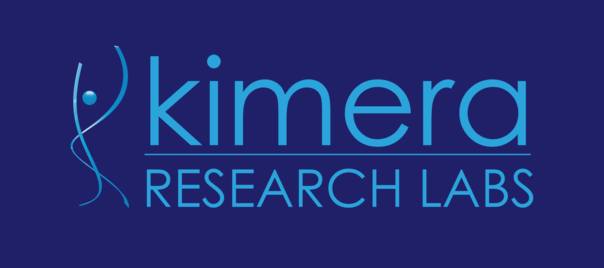 Ross’s interest in the use of mesenchymal stem cells (MSCs) for immune suppression stemmed from this work and the work of others in the use of MSCs to treat GVHD.
Ross’s interest in the use of mesenchymal stem cells (MSCs) for immune suppression stemmed from this work and the work of others in the use of MSCs to treat GVHD.
In 2008, Ross founded Kimera Labs in Miami, currently focused on the use of MSCs for the suppression of various immune mediated pathologies and regenerative medicine in the US, Latin America, and the Bahamas.
Ross recently obtained Institutional Review Board (IRB) approval to perform a patient sponsored clinical trial for chronic obstructive pulmonary disorder (COPD) using mesenchymal stem cells purified from fat, through the Kimera Society. Kimera Labs in association with Global Stem Cells Group plans to apply the same approach to diabetes and other autoimmune diseases.
Ross joins a group of esteemed stem cell researchers and physicians on the Global Stem Cells Group Advisory Board, who contribute their expertise and provide strategic advice for the management of the international biotech company.
To learn more, visit the Global Stem Cells Group website, email bnovas(at)stemcellsgroup(dot)com, Or call +1 305 560 5337.
About Global Stem Cell Group:
Global Stem Cells Group, Inc. is the parent company of six wholly owned operating companies dedicated entirely to stem cell research, training, products and solutions. Founded in 2012, the company combines dedicated researchers, physician and patient educators and solution providers with the shared goal of meeting the growing worldwide need for leading edge stem cell treatments and solutions. With a singular focus on this exciting new area of medical research, Global Stem Cells Group and its subsidiaries are uniquely positioned to become global leaders in cellular medicine.
Global Stem Cells Group’s corporate mission is to make the promise of stem cell medicine a reality for patients around the world. With each of GSCG’s six operating companies focused on a separate research-based mission, the result is a global network of state-of-the-art stem cell treatments.
###
To view this press release live online, click here
- Published in Press Releases
Global Stem Cells Group and University of Santiago Biotech Lab Endorse Asia-Pacific Symposium
Global Stem Cells Group and the University of Santiago, Chile have endorsed an Asian-Pacific alliance for a regenerative medicine and stem cell symposium July 1-2 at the university’s Santiago campus and other stem cell protocol management initiatives. Through the alliance, the two organizations established a working agenda for collaborative initiatives in stem cell and regenerative medicine research and development for 2016 – 2020.
Global Stem Cells Group and the University of Santiago Biotechnology Lab have announced a mutual endorsement of an Asia-Pacific Symposium as other research and development initiatives for potential stem cell protocol management for 2016 – 2020.
 In 2015, University of Santiago officials and top Global Stem Cells Group executives began meeting to establish a working agenda and foster initiatives to promote stem cell research and development as a collaborative effort.
In 2015, University of Santiago officials and top Global Stem Cells Group executives began meeting to establish a working agenda and foster initiatives to promote stem cell research and development as a collaborative effort.
Professor Alejandra Moenen, Ph.D., who heads the University of Santiago’s Biochemistry and Molecular Biology Department, and a team of Ph.D.s from the university will join Global Stem Cells Group for their first joint venture, an Asia-Pacific Symposium on stem cell and regenerative medicine July 1-2, 2016. Moenen is an internationally prominent researcher whose work in biological research has been published in 50 major scientific journals worldwide.
The symposium will focus on regenerative medicine and stem cell applications to anti-aging and aesthetic medicine. University of Santiago faculty will lead the symposium, which will host qualified academic and medical groups from around the world who will present their scientific papers.
Global Stem Cells Group and the University of Santiago’s Biotechnology Department decided to join forces and create a collaborative agenda based on the synergy between the two organizations.
“Chile is a country where we have first world science, without being part of developed countries,” says Moenen. “Today 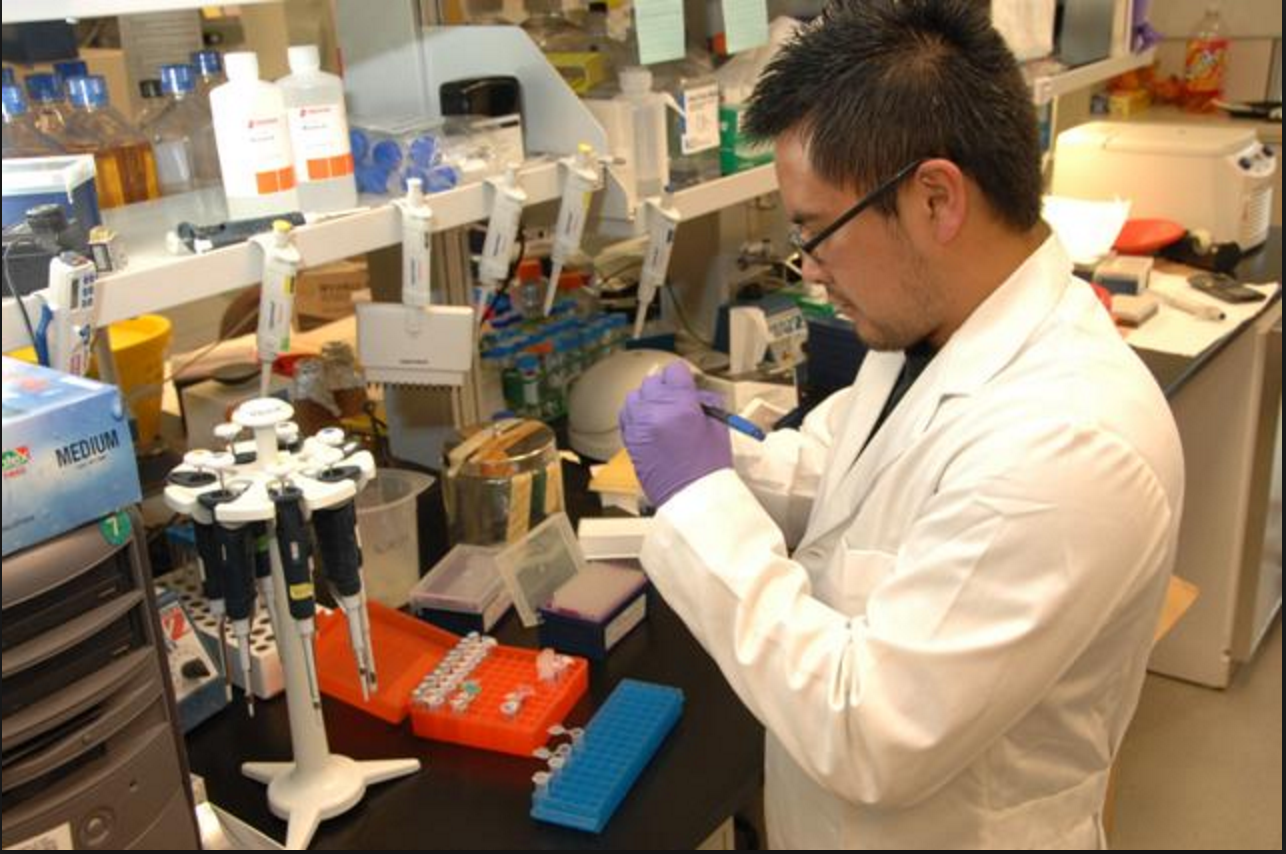 we are proud to start an alliance through which we can work hand in hand with Global Stem Cells Group and its international network, which has been able to harness science to improve the quality of life for people. “
we are proud to start an alliance through which we can work hand in hand with Global Stem Cells Group and its international network, which has been able to harness science to improve the quality of life for people. “
Enrique Testart, M.D., Chief Medical Officer of Global Stem Cells Group, says he was honored to learn that a Chilean
University had initiated this new approach to collaborating with GSCG, which he believes will offer unparalleled opportunities for exchange, relationships with other institutions, and all the technology that Global Stem Cells Group can offer for studies and analysis in the area of regenerative medicine.
“A range of criteria and this innovative university are what stand out in this framework agreement,” Testart says. “It places us above any attempt to trivialize the issue.
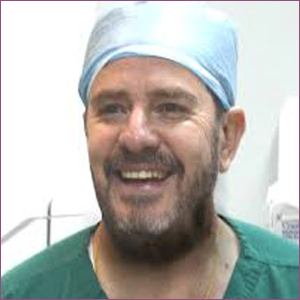
Enrique Testart, M.D.
“Stem cells are not a fad, there are those who have been working for two decades in this field, and therefore the union between this esteemed university and this young and talented biotech company is good news for the country, for the world and for science—everyone should applaud.”
A meeting to confirm the Asia-Pacific Symposium alliance was attended by Kevin Maisey, Ph.D., and Jorge LaPorte, Ph.D., both representing the Biology and Biochemistry Department of the University of Santiago. University Dean Silvia Ferrada Vergara has validated the agreement, which will be announces at the Asia-Pacific Conference in July.
For more information, visit the Global Stem Cells Group website, email bnovas(at)stemcellsgroup(dot)com, or call +1 305 560 5337.
About Global Stem Cell Group:
Global Stem Cells Group, Inc. is the parent company of six wholly owned operating companies dedicated entirely to stem cell research, training, products and solutions. Founded in 2012, the company combines dedicated researchers, physician and patient educators and solution providers with the shared goal of meeting the growing worldwide need for leading edge stem cell treatments and solutions. With a singular focus on this exciting new area of medical research, Global Stem Cells Group and its subsidiaries are uniquely positioned to become global leaders in cellular medicine.
Global Stem Cells Group’s corporate mission is to make the promise of stem cell medicine a reality for patients around the world. With each of GSCG’s six operating companies focused on a separate research-based mission, the result is a global network of state-of-the-art stem cell treatments.
About the University of Santiago:
Celebrating the 166th anniversary of its founding in 2016, the University of Santiago is one of the oldest and most traditional institutions of higher education in Chile. Offering 66 comprehensive undergraduate programs to more than 18,000 students, the university has seven faculties representing departments of Engineering, Humanities, Science, Business and Economics, Chemistry and Biology, Medical Sciences and Technology. The university us moving toward a new era of implementing improved and advanced master’s degree and doctoral degree programs, in addition to the numerous courses and postgraduate programs already in place in a variety of academic and research disciplines.
Since Chile’s 1981 higher education reform, the University of Santiago has concentrated its activities in the metropolitan area, with a particular focus on teaching, research and extension, carried out on the 34-hectare (84 acre) campus in the City of Santiago.
The University of Santiago is known for its participation in national and international projects and the contributions of its scholars to various fields of knowledge. A singular effort has been placed on linking the work of university researchers, who have a close relationship with the socio-economic needs of the country, to improve public health conditions in the country. The University of Santiago is one of Chile’s four Universities noted for successful fundraising efforts to support research and development.
###
To view this press release online, click here
- Published in Press Releases
Global Stem Cells Group Advisory Board Member Duncan Ross, Ph.D., to Speak at Santiago, Chile Symposium
Global Stem Cells Group Advisory Board member Duncan Ross, Ph.D., founder of Kimera Research Labs, will be the keynote speaker at the Global Stem Cells Group Symposium in Santiago, Chile July 1-2, 2016.
 MIAMI, April 26, 2016–Global Stem Cells Group has announced that affiliate Kimera Research Labs founder Duncan Ross, Ph.D., a GSCG Advisory Board member, will be the keynote speaker at the Asia-Pacific Symposium in Santiago Chile, July 1-2, 2016. The abstract for Ross’s lecture will be, “The mechanism of action of stem cells in regenerative medicine is increasingly being understood to be effected through paracrine factors. Central to the question of when and how to treat an individual disease is where and for what duration a transplanted cell will persist to generate these factors.”
MIAMI, April 26, 2016–Global Stem Cells Group has announced that affiliate Kimera Research Labs founder Duncan Ross, Ph.D., a GSCG Advisory Board member, will be the keynote speaker at the Asia-Pacific Symposium in Santiago Chile, July 1-2, 2016. The abstract for Ross’s lecture will be, “The mechanism of action of stem cells in regenerative medicine is increasingly being understood to be effected through paracrine factors. Central to the question of when and how to treat an individual disease is where and for what duration a transplanted cell will persist to generate these factors.”
In the absence of a robust ability to track cell persistence in humans, Dr. Ross will present current research in murine hematopoietic and mesenchymal stem cell transplantation with support from human transplant results.
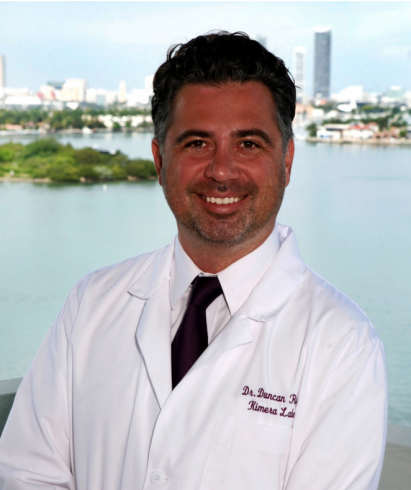
Duncan Ross, Ph.D.
The symposium will be co-sponsored by Global Stem Cells Group and the University of Santiago’s Biochemistry and Molecular Biology Department, and will focus on regenerative medicine and stem cell applications to anti-aging and aesthetic medicine. University of Santiago faculty will lead the symposium, which will host qualified academic and medical groups from around the world who will present their scientific papers.
The symposium is the first joint endeavor between Global Stem Cells Group and the University of Santiago since establishing an alliance recently, and which will be announced at the Asia-Pacific Symposium. It also marks Ross’s first appearance as a member of the Global Stem Cells Group Advisory Board.
Ross received a Ph.D. in Immunology from the University of Miami and specializes in research, mesenchymal stem cell applications, hematopoietic stem cell transplantation for hematologic disorders, the suppression of graft vs. host disease, and var
ious methods of immune suppression.
Global Stem Cells Group and Kimera Labs share a commitment to research and development, and providing stem cell treatments to patients in clinical settings worldwide.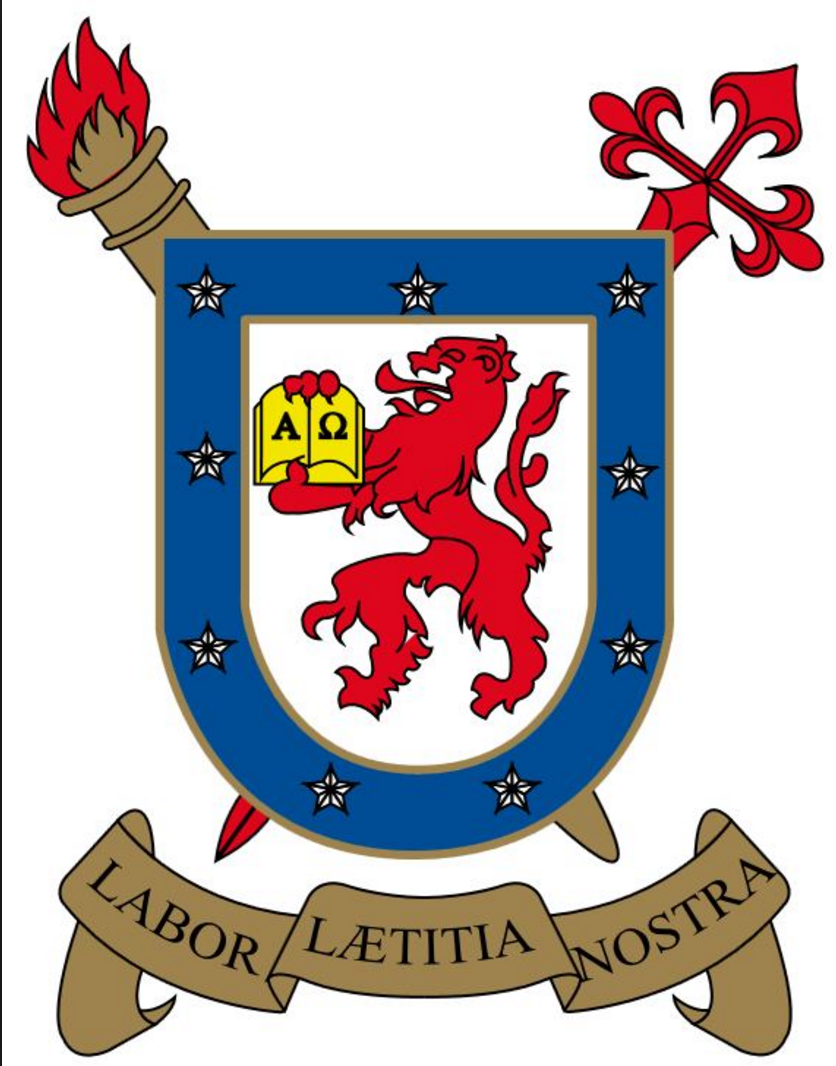
To learn more, visit the Global Stem Cells Group website, email bnovas(at)stemcellsgroup(dot)com, or call +1 305 560 5337.
About Global Stem Cell Group:
Global Stem Cells Group, Inc. is the parent company of six wholly owned operating companies dedicated entirely to stem cell research, training, products and solutions. Founded in 2012, the company combines dedicated researchers, physician and patient educators and solution providers with the shared goal of meeting the growing worldwide need for leading edge stem cell treatments and solutions. With a singular focus on this exciting new area of medical research, Global Stem Cells Group and its subsidiaries are uniquely positioned to become global leaders in cellular medicine.
Global Stem Cells Group’s corporate mission is to make the promise of stem cell medicine a reality for patients around the world. With each of GSCG’s six operating companies focused on a separate research-based mission, the result is a global network of state-of-the-art stem cell treatments.
About Kimera Labs:
Kimera Labs is currently focused on the use of mesenchymal stem cells (MSCs) for the suppression of various immune mediated pathologies and regenerative medicine in the US, Latin America, and the Bahamas. Founder Duncan Ross, Ph.D., is an immunologist and researcher who has studied hematopoietic stem cell transplantation for hematologic disorders, the suppression of graft vs. host disease, and various methods of immune suppression.
Kimera Labs provides patients access to stem cell treatment in the U.S. according to U.S. laws. In order to provide the greatest benefit to patients, Ross frequently travels to treat patients in Central and South America where specialists are available in a different regulatory environment.
###
To view this press release online, click here
- Published in Press Releases
Global Stem Cells Group and Kimera Labs Announce Autologous Stem Cell Research Alliance
Global Stem Cells Group and Kimera Research Labs have announced an alliance to conduct scientific research on highly manipulated cells and culture expansion, and cryopreservation of autologous stem cells.
MIAMI, April 26, 2016–Global Stem Cells Group and Kimera Research Labs have announced an alliance to conduct  scientific research on highly manipulated stem cells and culture expansion, and cryopreservation of autologous stem cells. The collaboration will open new opportunities for GSCG to increase its participation in scientific research and development of new stem cell protocols and treatments for a number of conditions.
scientific research on highly manipulated stem cells and culture expansion, and cryopreservation of autologous stem cells. The collaboration will open new opportunities for GSCG to increase its participation in scientific research and development of new stem cell protocols and treatments for a number of conditions.
The manipulation of stem cells involves the ability to deliver molecules into adherent cells without disrupting differentiation, a process biotechnology researchers need in order to advance both fundamental knowledge and the state-of-the-art in stem cell research. Differentiation is the process by which an unspecialized cell, such as a stem cell, becomes specialized into one of the many cells in the body. During differentiation, certain genes become activated and other genes become inactivated in an painstakingly regulated manner. As a result, a differentiated cell develops specific structures and performs certain functions that ultimately allows it to replace damaged or dead cells. In the laboratory, a stem cell can be manipulated to become specialized or partially specialized cell types, such as heart muscle, nerve, or pancreatic cells.
“Non-destructive manipulation of stem cells in the correct environment is key to enabling technology needed within the biology and medical research communities,” says Benito Novas, CEO of Global Stem Cells Group. “To realize the promise of stem cell-based therapies to treat injuries and diseases, scientists must be able to manipulate stem cells so that they possess the necessary characteristics for successful differentiation, transplantation, and engraftment.”
To bring successful new treatments to the clinic, scientists need to control certain steps for stem cells to be useful for transplant purposes. Researchers are constantly discovering new ways to manipulate stem cells to be reproducibly made to:
- Replicate extensively and generate sufficient quantities of cells for making tissue.
- Differentiate into the desired cell type(s).
- Survive in the recipient after transplant.
- Integrate into the surrounding tissue after transplant.
- Function appropriately for the duration of the recipient’s life.
- Avoid harming the recipient in any way.
Scientists are also experimenting with different research strategies to generate tissue without the concern of immune rejection.
 Research on cryopreservation of autologous stem cells is necessary for cell bank procedures in which stem cell expansion and use are not immediately needed. Cryopreservation allows for the long-term storage of hematopoietic stem cells (HSCs) and is the preferred storage technique for virtually all components intended for autologous HSC transplantation.
Research on cryopreservation of autologous stem cells is necessary for cell bank procedures in which stem cell expansion and use are not immediately needed. Cryopreservation allows for the long-term storage of hematopoietic stem cells (HSCs) and is the preferred storage technique for virtually all components intended for autologous HSC transplantation.
Cryopreservation allows the administration of multiple-day transplant conditioning regimens as well as elective storage for patients to receive transplants at a subsequent point in a course of treatment, and offers patients the opportunity to benefit from multidose protocols.
Global Stem Cells Group and Kimera Labs share a commitment to research, develop and provide stem cell treatments to patients worldwide in a clinical setting.
To learn more, visit the Global Stem Cells Group website, email bnovas(at)stemcellsgroup(dot)com, or call +1 305 560 5337.
About Global Stem Cell Group:
Global Stem Cells Group, Inc. is the parent company of six wholly owned operating companies dedicated entirely to stem cell research, training, products and solutions. Founded in 2012, the company combines dedicated researchers, physician and patient educators and solution providers with the shared goal of meeting the growing worldwide need for leading edge stem cell treatments and solutions. With a singular focus on this exciting new area of medical research, Global Stem Cells Group and its subsidiaries are uniquely positioned to become global leaders in cellular medicine.
Global Stem Cells Group’s corporate mission is to make the promise of stem cell medicine a reality for patients around the world. With each of GSCG’s six operating companies focused on a separate research-based mission, the result is a global network of state-of-the-art stem cell treatments.
About Kimera Labs:
Kimera Labs is currently focused on the use of mesenchymal stem cells (MSCs) for the suppression of various immune mediated pathologies and regenerative medicine in the US, Latin America, and the Bahamas. Founder Duncan Ross, Ph.D., is an immunologist and researcher who has studied hematopoietic stem cell transplantation for hematologic disorders, the suppression of graft vs. host disease, and various methods of immune suppression.
Kimera Labs provides patients access to stem cell treatment in the U.S. according to U.S. laws. In order to provide the greatest benefit to patients, Ross frequently travels to treat patients in Central and South America where specialists are available in a different regulatory environment.
###
To view this press release live on line, click here
- Published in Press Releases
Stem Cell Researchers Discover Stem Cells That Might Repair Skull, Face Bones
Scientists may be one step closer to a breakthrough that uses stem cells to replace damaged skull and facial bones in patients who experience a head trauma or undergo cancer surgery requiring repair and reconstructive surgery.
Researchers have discovered and isolated stem cells capable of repairing these bones in mice. The research, led by Takamitsu Maruyama and the research team at the University of Rochester Medical Center in Rochester, N.Y., could also help patients born with a skull deformity known as craniosynostosis, which can lead to developmental delays and pressure on the brain.
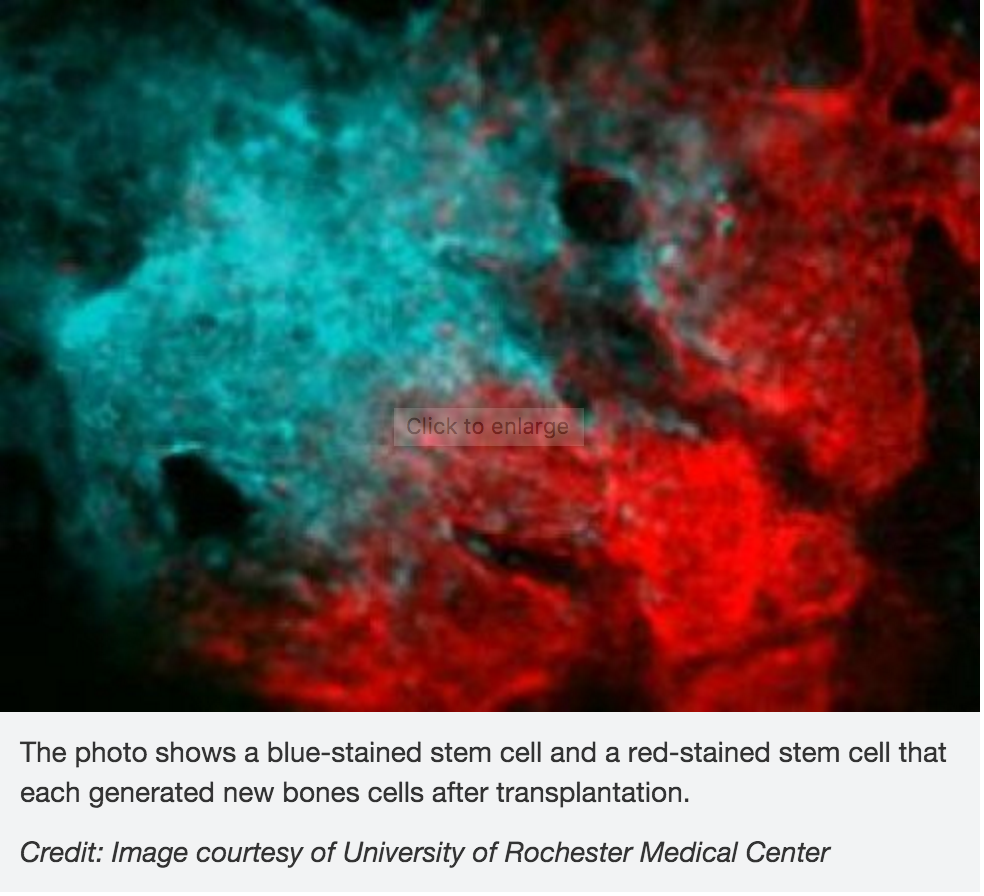 In the study, scientists investigated the role of the Axin2 gene in bone formation and regeneration. They also examined a specific mutation that causes craniosynostosis in mice. Their finding show that stem cells involved in skull formation are contained within this cell population. These cells are specificto the bones in the head and are very different from other stem cells involved in the formation of the bones in the legs and other parts of the body.
In the study, scientists investigated the role of the Axin2 gene in bone formation and regeneration. They also examined a specific mutation that causes craniosynostosis in mice. Their finding show that stem cells involved in skull formation are contained within this cell population. These cells are specificto the bones in the head and are very different from other stem cells involved in the formation of the bones in the legs and other parts of the body.
Tests to uncover these cells could also help physicians detect bone diseases caused by stem cell abnormalities, according to the researchers.
The research was published Feb. 1 in the journal Nature Communications.
- Published in Corporate News / Blog
German Stem Cell Scientists Develop 3-D “Mini-retinas” –New Hope for Restoring Sight in Patients with Retinal Degeneration Caused by Diabetes and Inherited Disorders.
Medical breakthroughs using stem cells are aimed at all parts of the body bones, kidneys, joints, spines–and now, sight.
A German study in March in Stem Cell Reports, reports that scientists have created an efficient way of developing 3D retina organoids leverage the self-organizing properties of stem cells to create diverse multi-cellular tissue proxies.
3-D Mini-retinas protocol
The new mini-retina protocol involves cutting an organoid grown from stem cells into three, half-moon shaped pieces at an early stage of eye development. Each of these pieces eventually grows into the full suite of cells found in the retina.
3-D retinal organoids developed in this process efficiently replicate retina formation. This includes the light-detecting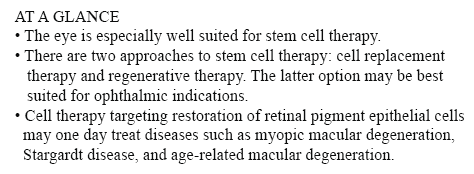 cone cells, which now can be produced in high quantities.
cone cells, which now can be produced in high quantities.
Cone photoreceptors, which are responsible for high acuity and color vision, are the most precious retinal cell type with regard to potential future cell replacement therapies in patients affected by retinal degeneration caused by diabetes and inherited disorders.
The process of developing 3D retinal organoids also allows the surviving organoids to grow to reach sizes similar to uncut organoids. These mini-retinas swim around in the dish and because they’re not attached to a surface, better reflect the structure of retinal tissue during development.
In the past, the inability to produce such cells has been a major limitation for regenerative medicine; however, this new method increases the yield of retinal organoids 4-fold, allowing researchers to take a great step forward in the study of the retina and how to repair it.
3-D Mini-retinas offer more diverse ways to study retina tissue
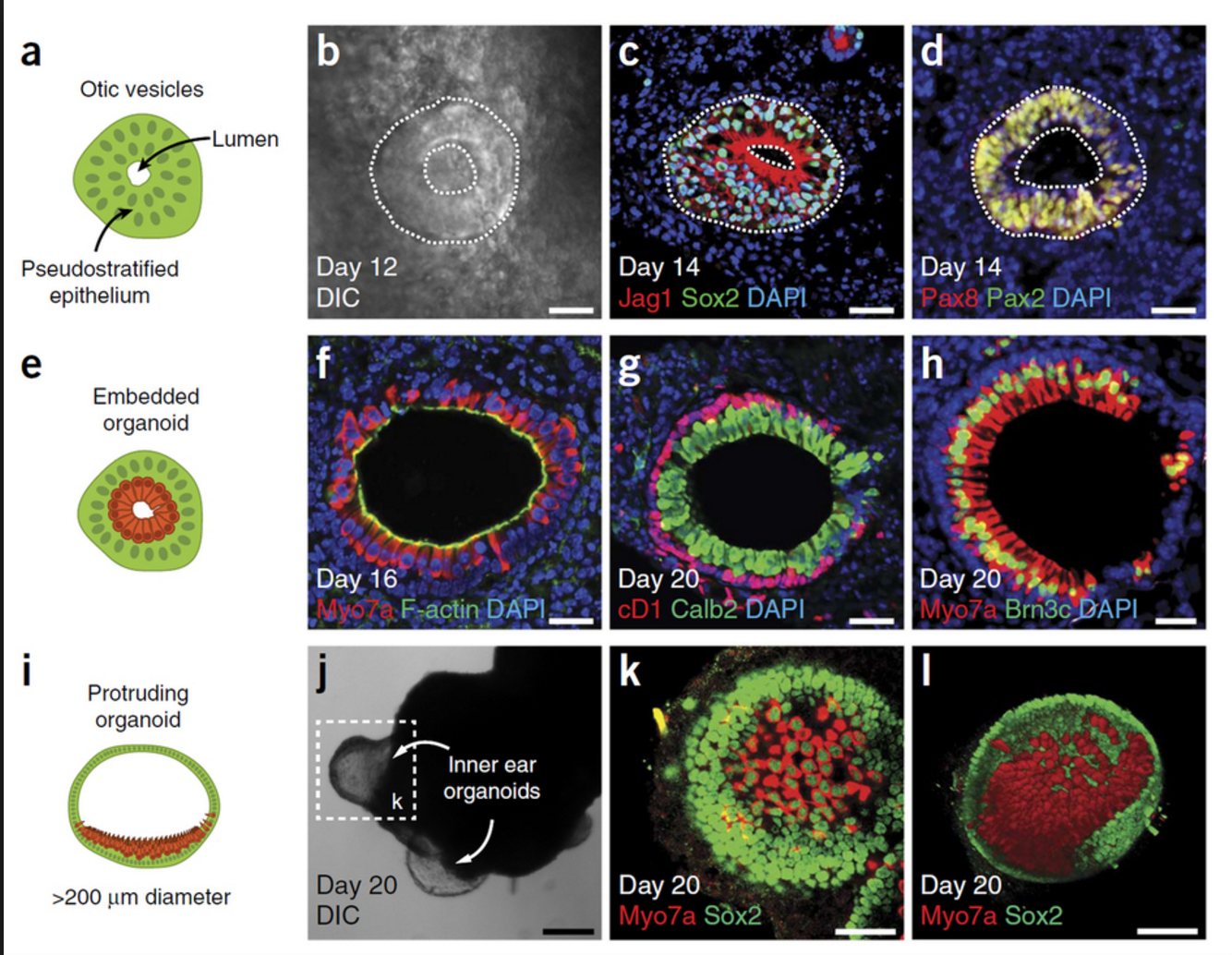 “The goal isn’t just to make the closest thing next to a real retina, but also to possibly harness the flexibility of the system to create more diverse ways of studying retina tissue,” says senior author Mike Karl, of the German Center for Neurodegenerative Diseases (DZNE) and part of the Center for Regenerative Therapies (CRTD) at Technische Universität Dresden.
“The goal isn’t just to make the closest thing next to a real retina, but also to possibly harness the flexibility of the system to create more diverse ways of studying retina tissue,” says senior author Mike Karl, of the German Center for Neurodegenerative Diseases (DZNE) and part of the Center for Regenerative Therapies (CRTD) at Technische Universität Dresden.
“Even with our new additions to existing organoid systems, we have not yet reached that tipping point of robustness that we need for people without the expertise to grow these models.”
Karl and his colleagues’ comparative studies on pluripotent stem cell-derived human and mouse retina organoids and mouse retina in vivo support the power of the new organoid protocol.
New insights in the study of retinal disease
“Tissue heterogeneity (diversity) is a major challenge in organoid systems, and here our work provides new insight, which will help to develop specific organoid-based models, specifically to reliably study retinal disease mechanism,” says Karl.
The Karl Lab’s change to the mini-retina protocol involves cutting a retina organoid grown from stem cells into three pieces at an early stage of eye development. Each of these pieces, which look like little half moons, eventually grows into the full suite of cells found in the retina, thereby increasing the yield of retinal organoids up to 4-fold compared to previous protocols. Karl’s next objective is to make his 3-D “mini-retinas” even more complex, perhaps by bringing in blood vessels and using the organoids to study regeneration and the function of different neural cell types–specifically, from the human retina.
- Published in Corporate News / Blog

